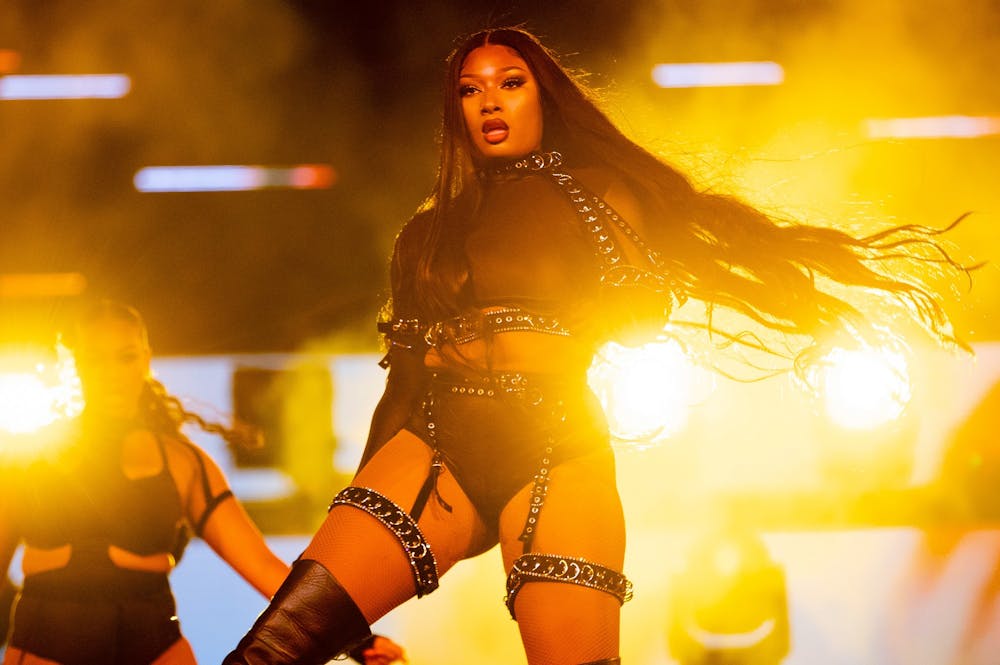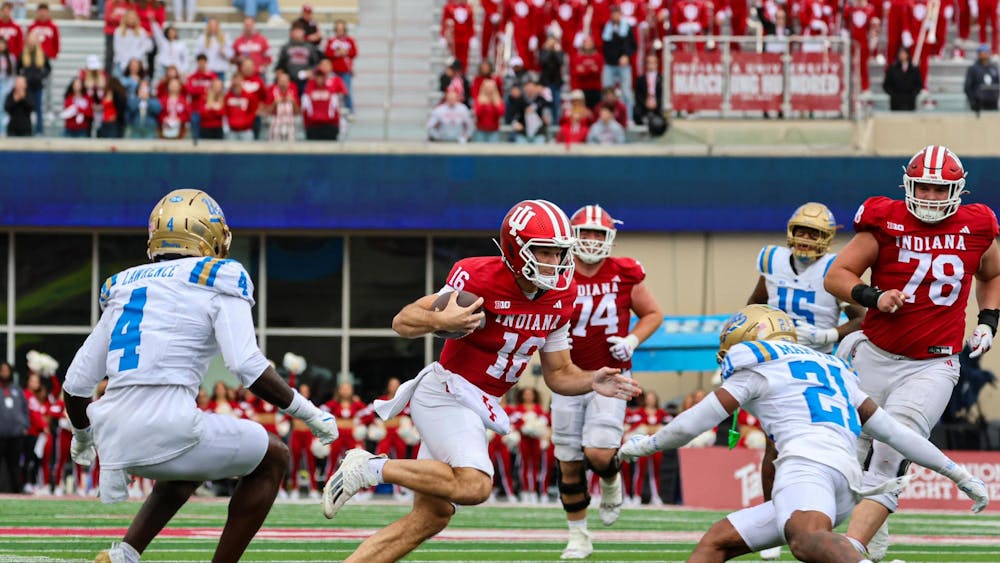Music reaches a special place in our heart. We use it to express ourselves in various ways. When you're in your feelings, you play some Drake. When you want to turn up and sing along with your friends, you turn on the latest Lil’ Baby hit. Music is the cherry on top when it comes to setting a mood.
One of the most popular artists, in terms of creating music that encourages you to let loose, is Megan Thee Stallion. In early March, Megan released the extended play SUGA that consisted of popular singles such as Captain Hook and her first chart-topper, Savage featuring Beyoncé. Savage was an early quarantine lockdown favorite and was accompanied by immensely popular TikTok dance. On Friday, fans were ecstatic with the release of Megan’s debut album titled "Good News." With a 17-count tracklist, the album includes new songs that feature City Girls, Lil Durk, SZA and Popcaan.
In the world of hip-hop, Black women have played extremely important roles. In the 1980s we began to see women taking a profound interest in Rap, with groups such as Salt-N-Pepa. The trio’s most popular hit, "Push It", left the hip-hop world in awe after being released as the B-side of the "Tramp" single in 1987, and as its own in 1988. The song peaked at number 19 on the Billboard Hot 100 of the same year. "Push It" was the beginning of Black women being unapologetic about their sexual desires and demands from men through music.
In the early 1990s there was a shift in the consciousness of female rap lyrics and content. New York native and Rapper MC Lyte, highlighted the stress, strife and pleasure of beginning a new relationship with a love interest in her 1991 single "Poor Georgie." In the record, she describes the timeline of their relationship and how it tragically ended, leaving her with regrets to deal with forever.
Queen Latifa also educated us in her 1993 single U.N.I.T.Y when she discussed the fight for social transformation and women’s rights. From iconic lyrics like “Love a Black man from infinity to infinity” and the infamous “Who you callin’ a Bitch?” adlib, Queen Latifa taught us a collective of Afrocentric teachings from how to demand respect to the importance of cherishing our fellow Black brothers.
Proceeding U.N.I.T.Y rapper Da Brat released her debut album "Funkdafied" in 1994, which sold upwards of one million copies. This chart-topping success made her the first first female solo rap act to receive a platinum certification. Da Brat's rap style was much different than anything the industry had seen before. Hailing from Chicago she exuded a funky swagger with a tomboyish charm. In a recent interview with Rolling Stone, Da Brat emphasized the importance of living in your truth and how pride is a reflection of self-love after coming out as a member of the LGBTQ community.
In November of 1996, Lil Kim dropped the instant classic and universally acclaimed album "Hard Core." The title of this album was very indicative of the content to say the least. Executively produced by The Notorious B.I.G., "Hard Core" debuted on the US Billboard charts at number 11. In the album, the 21-year-old Lil’ Kim flaunts her thrilling sense of humor regarding world views and sex. Her unapologetic tone brought back the old spunk that Salt-N-Pepa introduced us to, but with vengeance. Aside from music, Kim’s iconic wardrobe consisting of colorful two piece sets and matching wigs started a classic trend that remains popular.
Following in Lil’ Kim’s footsteps, rapper and Lil Wayne protégé, Nicki Minaj returned unapologetic and edgy topics of femininity to the rap industry. Her 2010 album "Pink Friday" rocked the charts with staple generation Z bops, such as "Your Love" which peaked at number 14 on the US Billboard Hot 100. Minaj made history with the single by also being the first female to top the Billboard Rap charts as well. As opposed to the other artists mentioned, Minaj experienced a significant amount of attention in the beginning of her career considering her lack of competition in regards to other dominant female rappers at the time. Consequently, Minaj also became known for loud sense of style with her unique Barbie-themed attire and flamboyant hair color.
Without the contributions of Black women, hip-hop would not be what we know it to be today. The contributions made by these women in a predominantly male industry changed Hip Hop indefinitely. Their confidence and wit practically raised a whole generation of young women, encouraging them to live fearlessly, boss up and never forget the importance of speaking highly of yourself.






